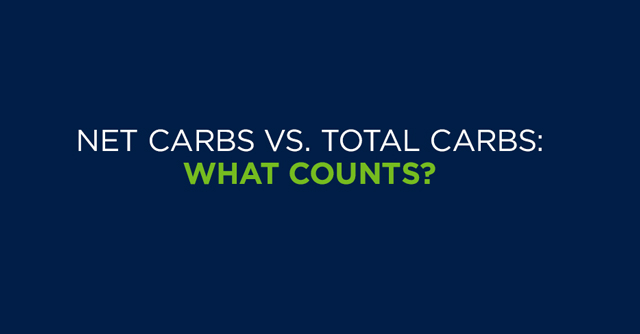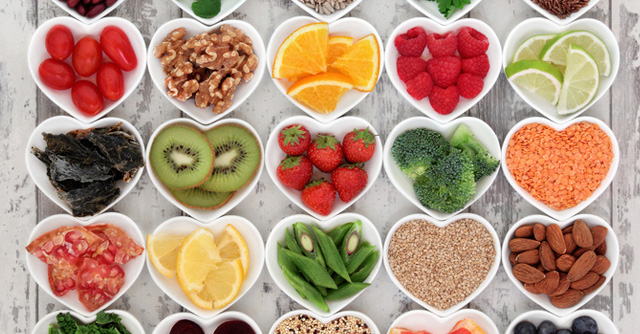Carbs vs. sugar: How to understand nutrition labels
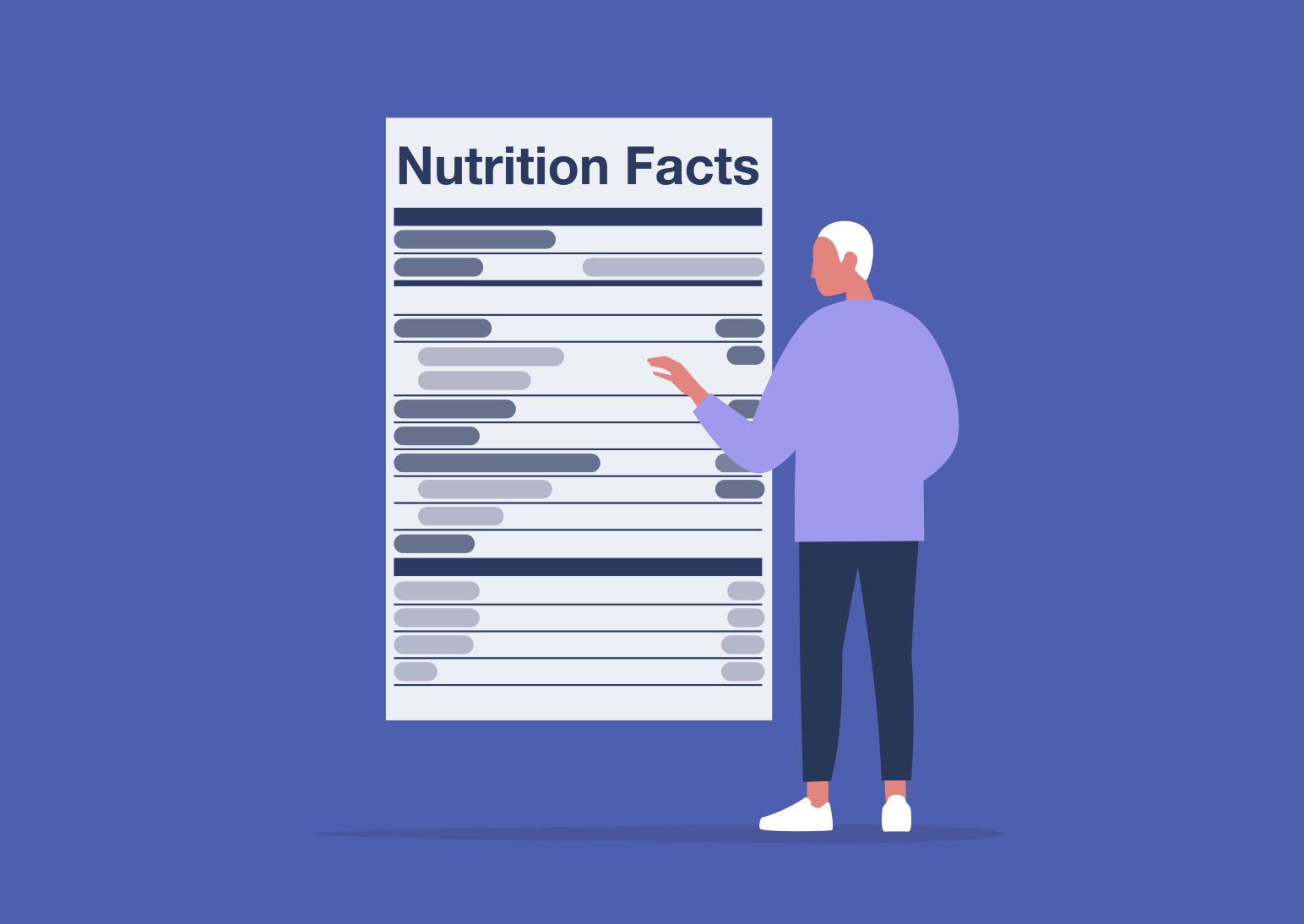
Carbohydrates and diabetes
Carbohydrates — just like fats and proteins — are essential macronutrients that play a vital role in balanced nutrition. For people living with diabetes, carbs often get a bad reputation, but they are not the enemy. In fact, people with diabetes can and should include carbohydrates as part of a healthy eating plan.
That said, the type and amount of carbohydrates matter. While too many carbs can raise blood sugar levels, managing carbohydrate intake is more effective than simply avoiding sugar. That’s why people with diabetes are encouraged to focus on total carbohydrates when reading nutrition labels — not just sugar.
What are carbohydrates?
Carbohydrates are the body’s main source of energy. When consumed, they are broken down into glucose, which fuels everything from brain function to muscle movement.2 But carbs do more than just provide energy. They also:
- Supply important vitamins and minerals
- Contain soluble and insoluble fiber
- Tend to be low in saturated fat when consumed from whole-food sources
What are the three types of carbs?
There are three main types of carbohydrates:1
- Sugars (simple carbs)
- Starches (complex carbs)
- Fiber (complex carbs)
Simple carbs, such as soda, cookies, pastries, and many breakfast cereals, are quickly digested and cause rapid spikes in blood sugar. On the other hand, complex carbs, like whole grains, legumes, and vegetables, contain longer chains of glucose, which take more time to break down and offer longer-lasting energy.
For everyday eating, the American Heart Association recommends focusing on complex carbs. However, simple carbs are helpful when you need a quick blood sugar boost, such as during a hypoglycemic episode.
Make healthier carb choices
Choosing the right kinds of carbohydrates can help manage blood sugar and improve overall health. Here’s how to prioritize:
Eat mostly whole, unprocessed, non-starchy vegetables
These include lettuce, cucumbers, broccoli, tomatoes, and green beans. They’re high in fiber, low in carbohydrates, and have minimal impact on blood sugar levels. According to the Plate Method, these foods should make up half your plate.2
Eat some whole, minimally processed starchy foods
This category includes:
- Fruits: apples, berries, cantaloupe
- Whole grains: brown rice, whole wheat bread, oats, quinoa
- Starchy vegetables: corn, peas, sweet potatoes, pumpkin, plantains
- Beans and lentils: black beans, kidney beans, chickpeas, lentils
These foods offer fiber, nutrients, and slow-digesting carbs—great for stable energy and blood sugar. Aim for these foods to fill about a quarter of your plate.2
Eat less refined and highly processed carbs with added sugars
Examples include:
- Sugary drinks (soda, sweet tea, juice)
- Refined grains (white bread, white rice, sugary cereals)
- Sweets and snack foods (cakes, cookies, candy, chips)
These options provide minimal nutrition and can cause spikes in blood sugar levels. It's best to limit these as much as possible.1
Understanding nutrition labels
A nutrition label gives you all the details about what’s in your food, including the macro breakdown. This sample of a nutrition label from the FDA shows the four main sections of the label.3
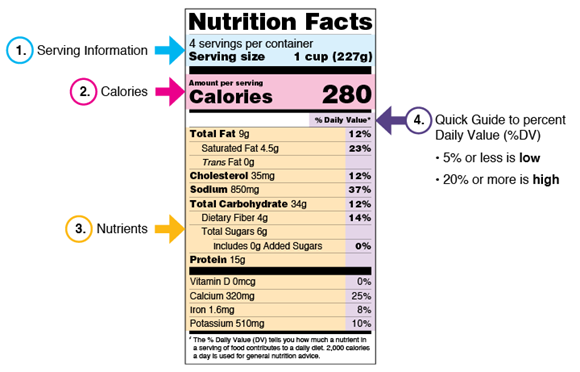
How would someone living with diabetes use the nutrition facts label? If you thought people with diabetes just needed to look for and avoid sugar, you may be overlooking complex carbs, which can still affect your glucose levels. See this label from an oatmeal container for another example.
Unflavored oatmeal
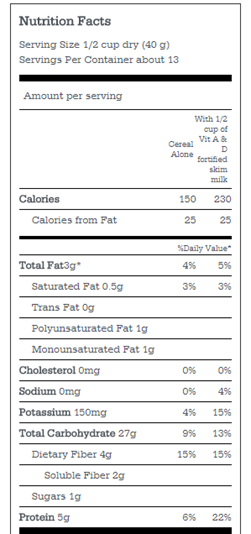
Someone who is focused on low-sugar meal options may see 1g of sugar and think this is a perfect option! They’re not wrong. Unflavored oatmeal is low in simple carbs, and high in complex carbs.
What this label also tells you is that there are 27g total carbs per serving. That is, the total of all sugar, starch, and fiber combined. Why does that matter? You need that number to help calculate your mealtime insulin, or your bolus. Taking a bolus before eating meals and snacks gives the insulin a head start in your system and helps you stay within your target range and avoid post-meal spikes in your blood sugar.
Final Thoughts
When reading nutrition labels, focus on total carbohydrates; this value will also include sugars and fiber.1 Carbohydrates aren’t off-limits for people with diabetes — they’re a key part of a balanced diet. Understanding the types of carbs and how they affect your body helps you make informed choices and maintain better blood sugar control. Remember: it’s not about cutting out carbs entirely, but about choosing them wisely.
Guest writer: Medtronic employee - Lisa Nicolussi, RN BSN CDCES

